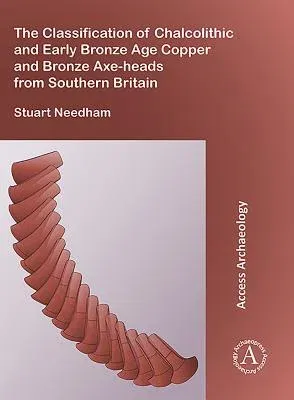This work presents a comprehensive classification of the morphology of
early metal age axe-heads, chisels and stakes from southern Britain. It
is illustrated by a type series of 120 representative examples. Despite
their relative simplicity, flat and early flanged axes from Britain and
Ireland show considerable diversity in form. The main variation lies in
outline shapes and the classification scheme arrived at therefore
depends on careful evaluation of condition, followed by rigorous
analysis of shape using metrical ratios. This ensures objectivity in
both the formulation of the scheme and future object attributions, for
which guidelines are given. Comparative material in northern Britain and
Ireland is systematically referred to and a few crucial Continental
parallels noted. Hoards and other associated finds, essential in
underpinning the chronology, are cited throughout. The style sequence
outlined spans nine centuries of evolution, a regional trajectory which
was nevertheless inextricably tied to axe developments in northern
Britain, Ireland and, to a lesser extent, the near Continent. While
technological advance is apparent at the broad scale, this was not the
sole driver of the style changes taking place. The study will be
indispensable for those researching early metalwork, those concerned
with European Chalcolithic and Early Bronze Age cultures and those
interested in patterns of style-cum-technological development.

